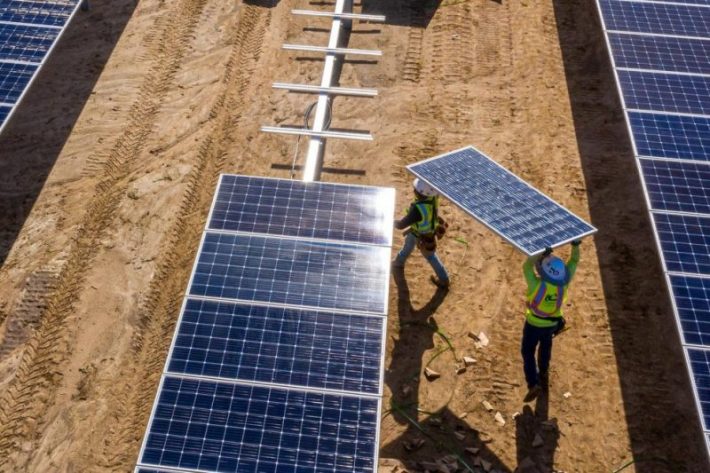US officials have continued their crackdown on solar panels and electronic items coming from China and Southeast Asia thought to contain components made by forced labour in western China.
Checks were ramped up in June 2022, to enforce new rules designed to oppose human rights violations in China’s Xinjiang province, where the largely Muslim minority has been dramatically suppressed. That has meant checks on goods from more than 6,000 shipments worth over $2 billion, according to official customs data.
In September electronics worth a year-high $74 million, such as solar panels and microchips mostly from Malaysia and Vietnam, were denied entry to the US or checked for components from forced labour in China.
Nearly half of them were rejected or were still pending approval, according to the latest data, which were updated earlier in November.
ALSO SEE: Binance’s Zhao Pleads Guilty To Money Laundering, Steps Down
In September alone, $82 million worth of shipments were either refused or were held for checks — 90% of which were electronics — a jump from less than $20 million in August.
Over two-thirds of rejected or held cargoes came from Malaysia or Vietnam, which are major exporters to the United States of solar panels and semiconductors. Vietnam is also a top supplier of textile, footwear and apparel.
The US customs authority had no immediate comment.
Xinjiang is a major producer of cotton and polysilicon, which is used in photovoltaic panels and semiconductors.
Compliance headaches
Malaysia and Vietnam have had cargoes worth about $320 million each denied or held for checks since the new rules came into force, nearly three times more than China’s.
Despite being a tiny portion of trade with Washington – export of semiconductors from the two countries combined was worth over $730 million in August alone.
It is unclear whether companies are holding off shipments over compliance headaches.
Malaysia’s trade ministry and Vietnam’s industry ministry did not reply to requests for comment.
Industry and government experts in both countries said they were either not aware of the issue or they had not heard any concerns.
Washington has accused China of genocide against the Uyghurs, with rights groups denouncing a widespread use of internment camps and forced labour. China has denied all accusations of abuse.
Since the introduction of the US Uyghur Forced Labor Protection Act (UFLPA), exporters must demonstrate their products do not include any raw material or component from Xinjiang.
- Reuters with additional editing by Jim Pollard
ALSO SEE:
Xinjiang Exports Jump as Trade to Central Asia Rises – Nikkei
US Consultancy Firm in China Worked on Xinjiang Before Raids
China Raids Capvision Amid Crackdown on Due Diligence Firms
US Ban on Xinjiang Could Hit Global Solar Panel Industry
China Should Release All Detainees in Xinjiang, UN Says























